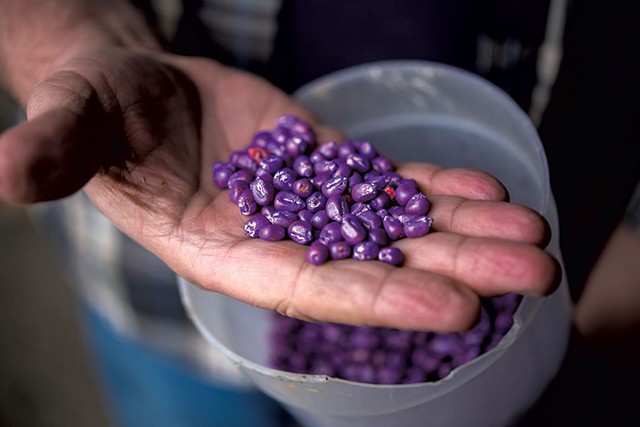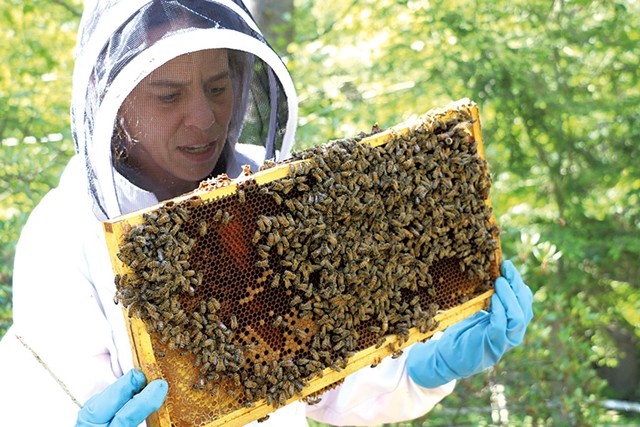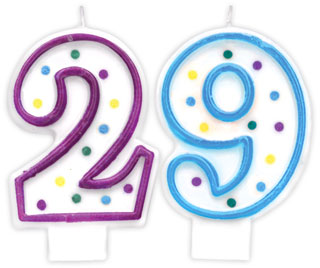
- Caleb Kenna ©️ Seven Days
- Pesticide-treated corn seed
The bill, H.706, would have prohibited the use of neonicotinoid pesticides beginning in 2025 for ornamental plants and in 2029 for agricultural seeds.
Most of the pesticide used in Vermont is on seeds that have been pretreated. Lawmakers found that at least 1,200 tons of seeds sold in the state in 2022 had been treated with a neonicotinoid product.
The bill was written to align with similar restrictions recently passed in New York State to ensure a sufficient supply of seeds was on the market by the time the ban went to effect. If the New York law was not in effect by 2029, then Vermont’s law would be repealed.
Farmers would still have been allowed to use the seeds if they could demonstrate that they had an "agricultural emergency" that required the use to protect crops. Scott argued that the bill would put Vermont’s dairy farmers at a disadvantage because most of the corn grown in the nation is from treated seeds.
“This bill unfairly targets dairy farmers reliant on corn crops and will harm farmers without achieving its goals for pollinators. For these reasons I cannot sign it into law,” he wrote.

- Kevin Mccallum ©️ Seven Days
- Brooke Decker inspecting a beehive
“It’s hard to believe that the governor chose World Bee Day to veto this sensible legislation to protect bees and other pollinators from toxic pesticides while supporting farmers through a just transition to safer alternatives,” said Paul Burns, executive director of the Vermont Public Interest Research Group.
Burns noted that neonicotinoid pesticides have been associated with “alarming losses of managed and wild bee populations” but provide little benefit to farmers. A 2020 study from Cornell University found that treated seeds cost more but provide no substantial benefit in corn and soybean crop yields.
The chemicals have been banned from Québec crops since 2019. Burns urged lawmakers to override the veto next month.










Comments
Comments are closed.
From 2014-2020, Seven Days allowed readers to comment on all stories posted on our website. While we've appreciated the suggestions and insights, right now Seven Days is prioritizing our core mission — producing high-quality, responsible local journalism — over moderating online debates between readers.
To criticize, correct or praise our reporting, please send us a letter to the editor or send us a tip. We’ll check it out and report the results.
Online comments may return when we have better tech tools for managing them. Thanks for reading.